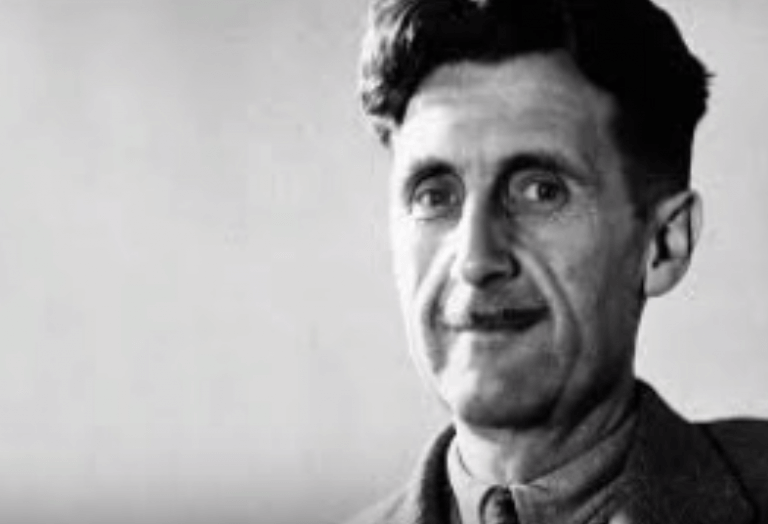Today we will talk about the biography of George Orwell, a well-known British novelist, essayist and journalist. Your novels, the animal revolution? And?1984?They carried his name in the annals of literature.
His work, based on his personal experiences, is divided into three distinct parts: the fight against British imperialism, support for democratic socialism, and the final struggle against Nazi and Stalinist totalitarianism.
- Orwell was one of the most important essayists of the 1940s.
- His most important texts focused mainly on the fight against fascism.
Deeply affected by the Spanish Civil War, in which he participated in the fight against fascism, and for his experience during World War II, George Orwell wrote against totalitarian systems and the dangers of war.
Your novel 1984? this is his conclusion regarding totalitarian societies. The world that Orwell recreated in this novel gave rise to the Orwellian term for these types of societies.
In this article, he addressed concepts such as language manipulation, mind control and abuse of power, and through dystopia he managed to capture a terrible future that we would never want to realize.
George Orwell is, in fact, the pseudonym of Eric Arthur Blair. The writer was born in Motihari, India, in 1903. Su father worked in the Opium Department of the Indian Civil Service, a British government agency that regulates public service in the colony. .
Little Eric was sent very young with his mother to England, where he was educated in the best schools. He has received scholarships to Wellington schools and also to Eton.
At the latter school, young George Orwell forged very important friendships for his early publications. After completing his studies in Eton, he decided to join the Imperial Indian Police in Burma, where he remained for five years.
During this period, his health was greatly affected and he developed a deep rejection of imperialism.
After leaving Burma, Orwell returned to England and began publishing some of his texts. He devoted himself to teaching, but also worked for a time in a bookstore, although his main trade was writing.
Later, he went to live with an aunt in France, hoping to consolidate himself as a writer, but his stay in Gaul was another disappointment. Back in England, he decided in 1933 to adopt the name George Orwell for his novels.
In 1936, he made the decision to go to Spain to fight fascism during the civil war.
Although some of his friends, such as Hemingway, tried to dissuade him, he arrived in Barcelona later that year. Too idealistic, he fought in front of Huesca, where he was shot in the neck.
His participation in the Spanish Civil War forever changed his world view. On his return from the Spanish Civil War, he had to be admitted to an English sanatorium for severe tuberculosis.
He then joined the National Guard during World War II. His experiences and reflections during these years were reflected in his work “Diio de Guerra”. He has worked for the BBC on programmes aimed at gaining the support of the Allied army in East Asian countries.
Shortly before his death he married Sonia Brownell. George Orwell died on 21 January 1950 of tuberculosis that kept him hospitalized for the last three years of his life.
George Orwell firmly believed that totalitarianism and language corruption were interconnected. He said that language in politics distorts all concepts and events, giving them other forms.
His 1984 work contains very important messages that underpin these ideas. One is your reflection on how you can modify the language in your structure to completely block out any thoughts of disobedience or rebellion.
Similarly, language manipulation is used in politics as a massive campaign of psychological manipulation.
He also wrote in depth about double thinking or the ability to keep in mind two contradictory ideas at the same time.
In his book “1984”, this cognitive dissonance is used in concepts such as the Ministry of Peace, where the war is managed, or the Ministry of Abundance, in charge of controlling economic scarcity.
Undoubtedly, for George Orwell, language structures human thought and, therefore, its importance is fundamental.
When language control is centralized in a political agency, it can be restructured so that no one can question the absolute power of a government, that is, totalitarianism.
Sometimes literature or even other artistic manifestations, such as cinema, allow a fundamental message to be conveyed to the population. In this sense, dystopia is a genre that lends itself very well to these reflections.
As we travel to a dark future, but remembering our present, we can give a critical and objective look at our own reality. How Can We Make a Difference?
Orwell became a master of the genre and gave us one of the best dystopian works ever written: 1984.

